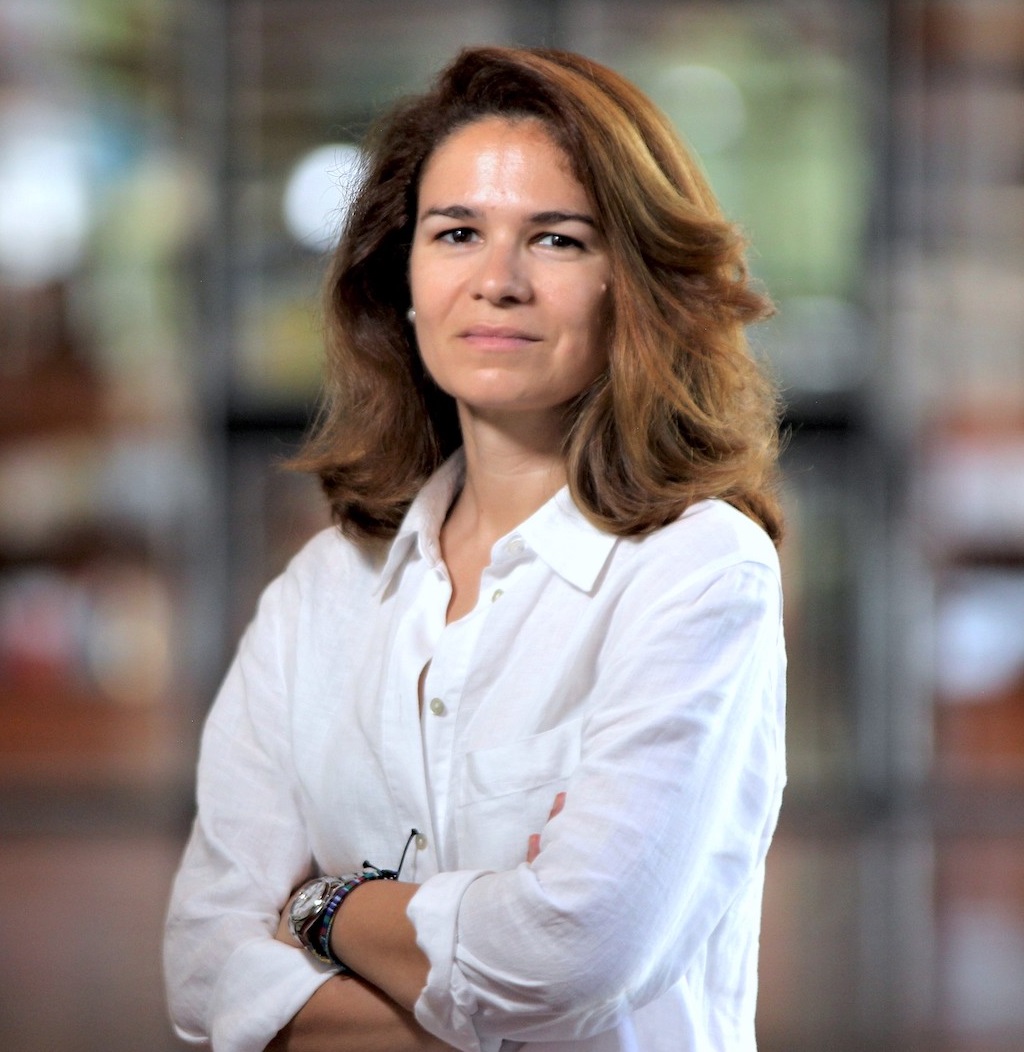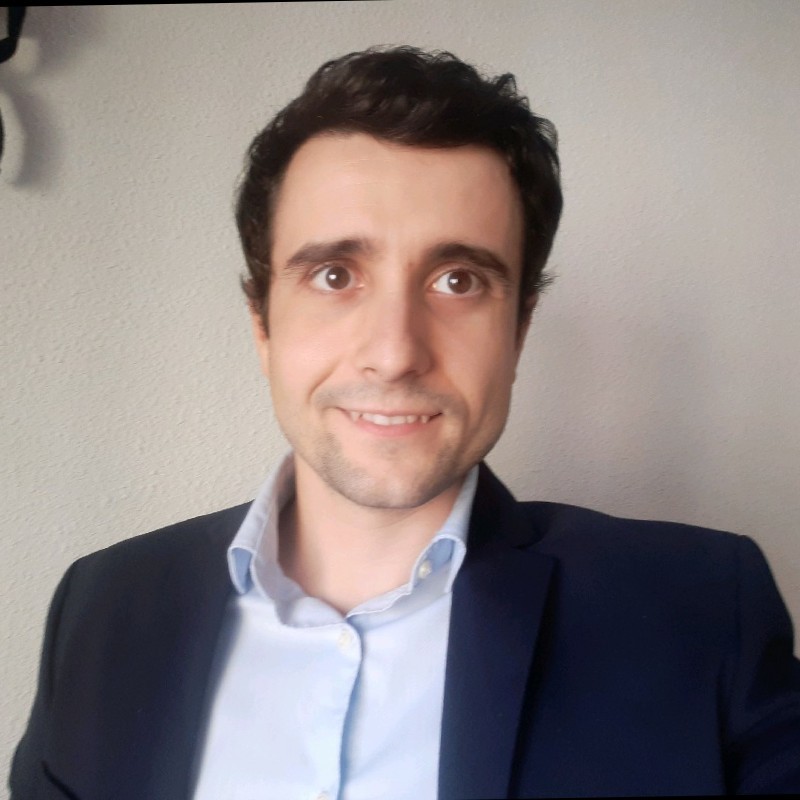Seminars of the Department of Law
Academic year 2024-2025
Organization
Direction: Professor Eimys Ortiz
With de support of fellows from the department of the speaker area.
Organization
Direction: Professor Eimys Ortiz
With de support of fellows from the department of the speaker area.

Date: November 11, 2024
Location: Meeting room of FDET
Time: from 17h to 18h
Presentation: “Security? Control? Deterrence? The Functions of Full-Body Strip Searches in Catalan Prisons”
Cristina Güerri holds a Ph.D. in Law and is a Tenure Track Professor in Criminology at Pompeu Fabra University (Barcelona). She was previously a Juan de la Cierva Postdoctoral Researcher at the University of Málaga (2020-2022) and an FPU Predoctoral Researcher at Pompeu Fabra University (2015-2019). Her research focuses on the study of prison systems from a criminological perspective. In this line of research, she has explored various topics, such as the role of internal officers, prisoners' perceptions of their quality of life in prison, prison supervision, full-body strip searches of inmates, and, more recently, the situation of foreign nationals in Spanish prisons.
Abstract: Full-body strip searches are, according to prison regulations, a security measure aimed at maintaining good order within the prison. However, these same regulations recognize the significant impact of full-body strip searches on the dignity and privacy of prisoners and, therefore, restrict the circumstances under which they may be used, establishing a procedure that must be followed to respect these rights. Previous literature has examined the legal regulation and jurisprudence regarding full-body strip searches in Spain. However, their practical application remains unknown. The research presented in this seminar studies the practice of full-body strip searches in Catalan prisons, based on original data provided by the prison administration. Specifically, it examines the frequency and circumstances under which full-body strip searches are conducted, as well as the outcomes they yield. Based on these results, the study questions the actual function of full-body strip searches in the prison system.

Date: March 10, 2025
Location: Meeting Room 1.32 FDET
Time: from 17h to 18h
Presentation: Tertullian and the Judicial Proceedings Against Christians. Due Process, Religious Conflict, and Legal Rhetoric
Álex Corona Encinas is a Permanent Lecturer in the Roman Law Department at the University of Valladolid. He holds a PhD in Law with an international distinction from the same university (2020). His research focuses on Late Roman law and political thought, particularly the intersections between Roman law and early Christianity. He is the author of the monograph Municipal Political Institutions During the Reign of Justinian I (527-565): A Historical-Legal Study (Dykinson, 2021) and has published numerous contributions in specialized journals and collective works. He has participated in national and international research projects and has undertaken research stays at various institutions, including Keio University (Japan), Universiteit Gent (Belgium), Uniwersytet Jagiellonski w Krakowie (Poland), and Ludwig-Maximilians-Universität (Germany). He has been a speaker at national and international conferences and seminars on Roman Law, Legal History, and Ancient History. In the field of teaching, he has lectured on subjects such as Roman Law, Comparative Private Law, and European Legal History at the University of Valladolid and the University of Navarra.
Abstract: The work of the Latin Christian theologian Tertullian is of great interest for the study of procedural matters in Roman society. In treatises such as Ad Nationes or Apologeticum, the North African author addresses issues related to the nature of the trials against Christians in Imperial Rome. In these cases, Tertullian denounces the anomaly posed by the reversal of many fundamental procedural principles of Roman law. Through a structured forensic discourse that does not shy away from rhetorical brilliance, the Carthaginian thinker exposes the contradiction in the logic of Roman judges and argues that Christians are judged without guarantees or proper investigation, and that the lack of evidence reveals the arbitrariness of the system.
Furthermore, he questions the validity of laws considered unjust, pointing out that criteria such as their antiquity or the authority responsible for their enactment are not sufficient to determine their legitimacy. Ultimately, an approach to Tertullian’s textual production highlights his originality in using legal concepts and reasoning to defend the Christian faith and denounce the inequity of the judicial process, while also helping to analyze the social and legal situation of Christian communities in pre-Constantinian Rome.

Date: December 16, 2024
Location: Meeting room of FDET
Time: from 17h to 18h
Presentation: "The European Union and Secession Processes"
Núria González Campañá, Assistant Professor of Constitutional Law at the University of Barcelona since 2021, joined the institution in January 2020 through a postdoctoral research fellowship after earning her PhD in Law from the University of Oxford in 2019 (supported by scholarships from the Rafael del Pino Foundation and the British Spanish Society). Previously, she completed a Master’s degree in Law and International Relations at The Fletcher School, Tufts University (thanks to a scholarship from the “la Caixa” Foundation) and graduated in Law from the University of Barcelona (with the distinction of an extraordinary award). Her primary research areas are: 1) Self-determination and secession in Spanish, comparative, and EU constitutional law, and 2) Constitutional democracy, rule of law, and judicial independence in Spanish and European law. In addition to participating in national research projects, she has been a member of the European project “Democratic Efficacy and the Varieties of Populism in Europe,” led by Professor Boda Zsolt from the Institute for Legal Studies (Budapest) and funded by the European Commission under the Horizon 2020 program (2018–2022). Currently, she is a member of the Group for the Study of Democracy and Constitutionalism (GEDECO) and a core team member of the Jean Monnet Chair in European Constitutional Democracy (EUCODEM) at the University of Barcelona, both led by Professor Josep M. Castellà. She is also a Junior Associate Researcher at the Giménez Abad Foundation.
Abstract: This seminar will address the phenomenon of secession within the Member States of the European Union. It will begin with a practical question: how has the EU acted in cases of secession (or attempted secession) in the past? Recent cases within the EU (Scotland and Catalonia) and in third countries (Montenegro) will be analysed. Following this, the legal stance that the EU should adopt will be examined, as, although its position may be influenced by political interests, the EU is a community founded on the rule of law and must be able to justify its actions based on its treaties and underlying principles.

Date: April 28, 2025
Location: Meeting Room, 1.32 FDET
Time: from 17.00h to 18.00h
Presentation: “The Use of Blockchain Technology and Private International Law”
Ferran Lambea González is a predoctoral FPU researcher at the University of Zaragoza, in the field of Private International Law. He obtained his Law degree at the University of Girona and his Master’s in Legal Practice at the University of Zaragoza, earning the extraordinary award in both degrees. He is a member of the University Association Millennium DIPr and is part of the Ius Familiae research group, recognized by the Autonomous Community of Aragon. He also participates in the University Research Institute on Work, Digital Society and Sustainability at the University of Zaragoza. His research focuses on the study of blockchain technology from the perspective of Private International Law, particularly on conflicts concerning the determination of international jurisdiction and applicable law.
Abstract: Blockchain technology enables the collective management of information without the involvement of traditional trusted intermediaries. It has been sixteen years since Bitcoin was created, the first use case of this technology. Since then, numerous projects have emerged based on blockchain, with different purposes and configurations. The managed information has been given various names: crypto-assets, cryptocurrencies, digital currencies, tokens, stablecoins, among others. The economic interest these assets generate has contributed to the proliferation of new specialized intermediaries who offer their “custody” services and facilitate purchase and sale. Many users turn to these intermediaries due to the complexity of participating directly in blockchain-based projects. Conflicts may arise within these relationships, leading to international litigation. This seminar will explore the blockchain phenomenon and the challenges it presents from the perspective of Private International Law, with a focus on the problems related to determining courts with international jurisdiction.

Date: February 3, 2025
Location: Laboratory of the Law Department (2.30)
Time: from 17h to 18h
Presentation: “Prisoners of War in the Russia-Ukraine Conflict: Is International Humanitarian Law Effective?”
Paula Cisneros Cristóbal holds a PhD in Law from the University of Zaragoza. She is currently an Assistant Professor at the University Centre of Defence (General Military Academy) and an active member of the Japan Research Group. She holds a Bachelor’s Degree in Law, a Master’s Degree in European Union Studies, a Master’s Degree in Japanese Studies, a Master’s Degree in Law Practice, and a Master’s Degree in Teacher Training. She was a scholarship recipient of the MIRAI Program of Japan’s Ministry of Foreign Affairs in the field of Defence. She began her research career with a two-year contract (2014-2016) as part of the European PPI4Waste project of the European Commission (H2020). She has taught Public International Law and European Union Institutions at the Faculty of Law of the University of Zaragoza (2018-2022); as well as being a Law lecturer at the Centre for University Studies - URJC (2022-2023); UNIR (2022-2023); European University (2023); and at the Faculty of Business and Public Management of the University of Zaragoza (2023-2024). She is the author of several publications related to Public International Law (European Union-Japan Relations; European Union Trade Agreements; Japan’s Foreign Relations; Security and Defence; International Humanitarian Law) and has conducted research stays at various institutions (Saitama University; University of Lorraine; University of Lleida).
Abstract: Since the beginning of the war between Russia and Ukraine, one of the issues that has caused the most concern is the compliance (or lack thereof) with the provisions of International Humanitarian Law by both states. This seminar aims to focus on the conditions of prisoners of war in the Russian-Ukrainian conflict and the respect for their rights as combatants. The objective is to emphasize the legal protection regime for individuals with prisoner of war status, correlating it with the combatant status itself. Within the framework of studying both statuses, specific situations from the Ukraine-Russia conflict will be analysed, where there are doubts about whether participants in hostilities are entitled to the protection granted by prisoner of war status (members of the Azov Regiment, the Wagner Group, the "Freedom of Russia" Legion, the Russian Volunteer Corps, as well as pro-Ukraine foreign fighters), reflecting on the compliance with International Humanitarian Law within the conflict framework and using as a starting point the available data on the situation of prisoners on both sides.